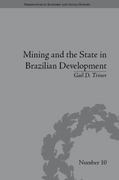Question
Up For Debate: Is College For Everyone? 01.24.2013by Katy Bowman, Cogito Should some students skip college and head right out into the working world? If
Up For Debate: Is College For Everyone?
01.24.2013by Katy Bowman, Cogito
Should some students skip college and head right out into the working world?
If you're a high-school student lucky enough to have 1) the brains to get into college, 2) parents who can pay your tuition, 3) scholarship opportunities, 4) a winning lottery ticket in your pocket and/or a golden egg up your sleeve, take a moment to think about one burden you've likely been spared: the burden of no college degree.
Even college graduates will tell you, the journey from high school to retirement is not lined with rose petals. Getting into college is hard work. College itself is hard work. And most of the time, work is hard work, too.
But for those without a college degree, that last road can be treacherous. It can involve hard physical labor, lower pay and a higher risk of losing their jobs to technology or overseas workers.
In the United States, nearly two-thirds of all jobs will require education and training beyond high school by the year 2020, according to a report from theGeorgetown University Center on Education and the Workforce, quoted recently in the Los Angeles Times.
But considering the ever-rising cost of a college education, to what extent should high-school students strive for a traditional four-year college experience? Should kids whose parents cannot afford to send them to college be willing to go deep into debt taking out student loans, just to earn a degree that won't necessarily guarantee them a job? And what about kids who feel they would be better off getting a job out of high school, instead of spending four years in college if it's just not right for them?
A panel of experts that included an economist, an economic-policy expert, an education-policy expert and the president of a Baltimore-area university debated this issue earlier this year through aseries of essays in the New York Times. Most of them agreed that, yes, some form of education beyond high school is vital for any young person hoping to live comfortably. But their opinions vary regarding what form that education should take.
"Higher education is now the surest path to the middle class in this country, and I can think of nothing more egalitarian than encouraging all Americans to pursue it," writesUMBCpresidentFreeman A. Hrabowski II.
But in his essay, Lawrence Mishel, president of theEconomic Policy Institute, asserts that we also need to prepare students for jobs that don't require college degrees.
"Even more important is that we need to ensure that these non-college jobs pay well and offer good benefits," he writes.
Step by Step Solution
There are 3 Steps involved in it
Step: 1

Get Instant Access to Expert-Tailored Solutions
See step-by-step solutions with expert insights and AI powered tools for academic success
Step: 2

Step: 3

Ace Your Homework with AI
Get the answers you need in no time with our AI-driven, step-by-step assistance
Get Started


